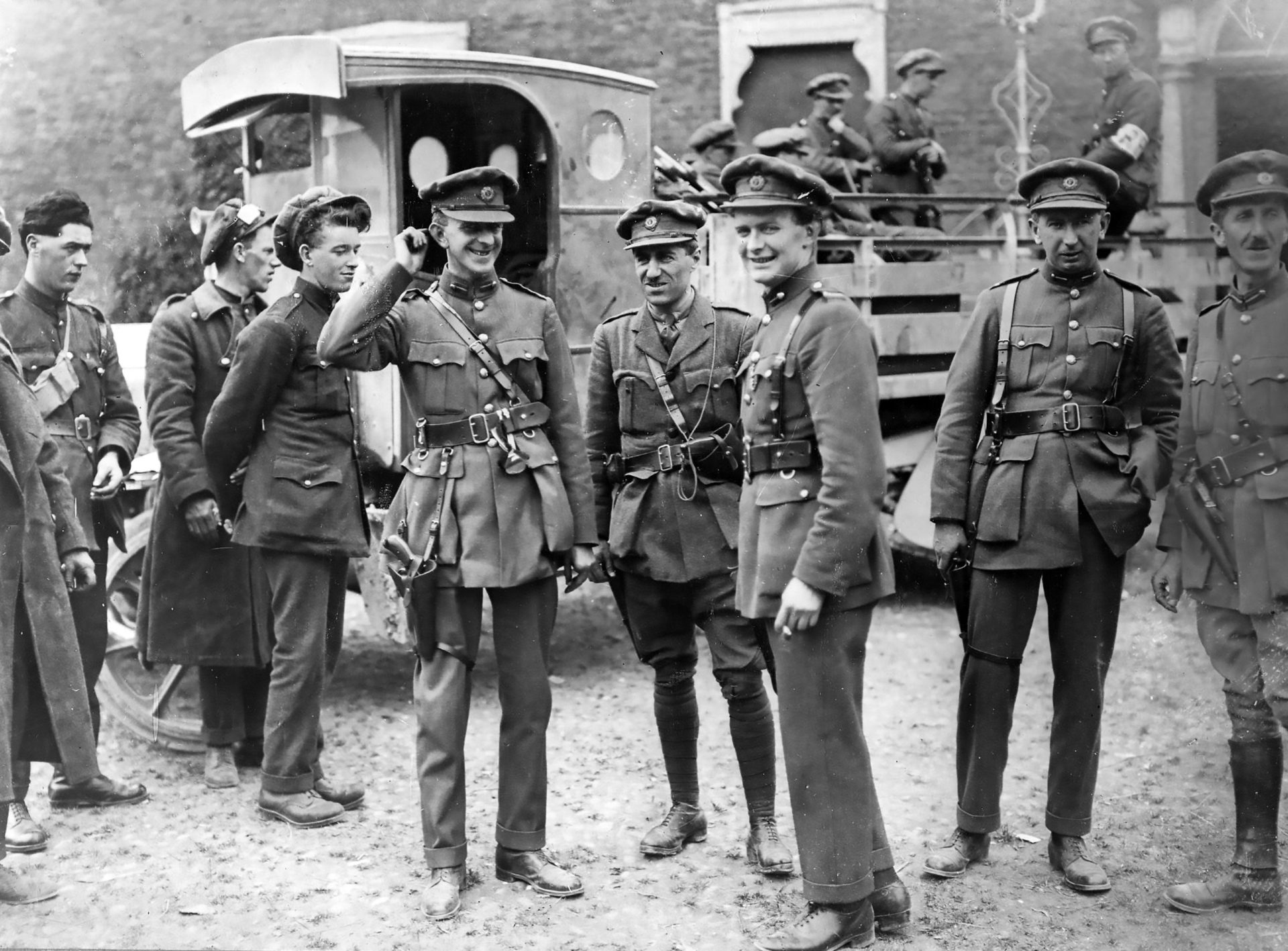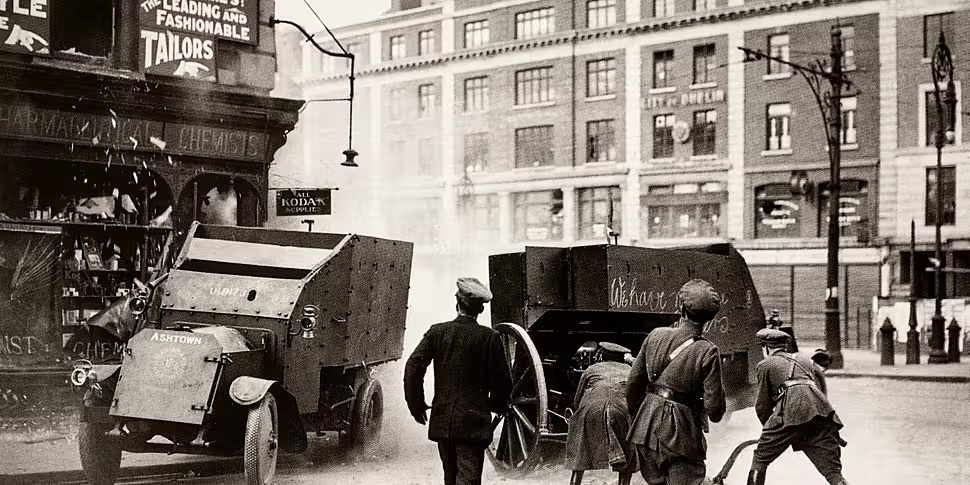As we approach the final ceremonies in the Decade of Centenaries, academics consider the reinterpretations of history that have occurred.
Members of the Oireachtas, Defence Forces and families connected to the Irish Civil War will celebrate the centenary of the ceasefire today in the Garden of Remembrance in Parnell Square.
This ceremony marks one of the last few events in the Decades of Centenaries programme, launched in 2012 to mark some of Ireland’s most historic events.
UCD Professor of Modern Irish History Conor Mulvagh said before we can determine the success of the programme, we must understand its aims.
“One of the central aims was to reinterpret the events of a century ago, and to contextualise them,” he told The Hard Shoulder.
“One of the things certainly tried was to globalise the events of Ireland a hundred years ago, whether it was writing about Indian law students who were residents in Dublin during the Lockout or whether it was the international elements of the 1916 Rising.”
Prof Mulvagh said a broader goal was the “reinterpretation” of Irish history, which he thinks has been quite successful.
He noted that the definable “endpoint” of the Irish Civil War is not as clear as one single date in May 1923.
The Public Service Act only came into effect in late summer of 1923, while 6,000 members of the IRA declared hunger strike in October 1923.
“So unfortunately, we can’t say the Civil War ended [in May 1923],” he said. “This is a significant day in one sense, but also a date that speaks more to the state narrative than reality.”
 GX4E55 IRISH CIVIL WAR (1922-1923) Group of National Army soldiers and officers
GX4E55 IRISH CIVIL WAR (1922-1923) Group of National Army soldiers and officersUCD Director of Gender Studies Dr Mary McAuliffe agreed that the Decades of Centenaries has started a “reinterpretation” campaign, which will likely last beyond the programme.
“It’s broadening out, so a lot of people are getting very interested in different aspects of the Revolutionary period, be it gender or class or revolutionary sexualities or radical politics,” she said.
Dr McAuliffe said the programme was important to expand history from the realms of lecturers and researchers.
“One thing that was very important was the democratisation of history, and that it has moved out of academia,” she said.
She said the programme has allowed them to learn more beyond the traditional interpretation of Ireland’s journey to independence.
Northern Ireland
Prof Mulvagh said the Decades of Centenaries is also important to contextualise the Republic of Ireland’s relationship with Northern Ireland.
“I particularly wonder as to whether the sentiments of Decades of Centenaries being visible was echoed in the north,” he said.
Dr McAuliffe agreed, adding that contemporary politics has affected how we have discussed the border, and the Decades of Centenaries has been able to highlight that.
“For instance, in my own research on violence against women, there's a huge spike in this in the spring and summer of 1922 north of the border while it's decreasing south of the border,” she said.
You can listen back here:









